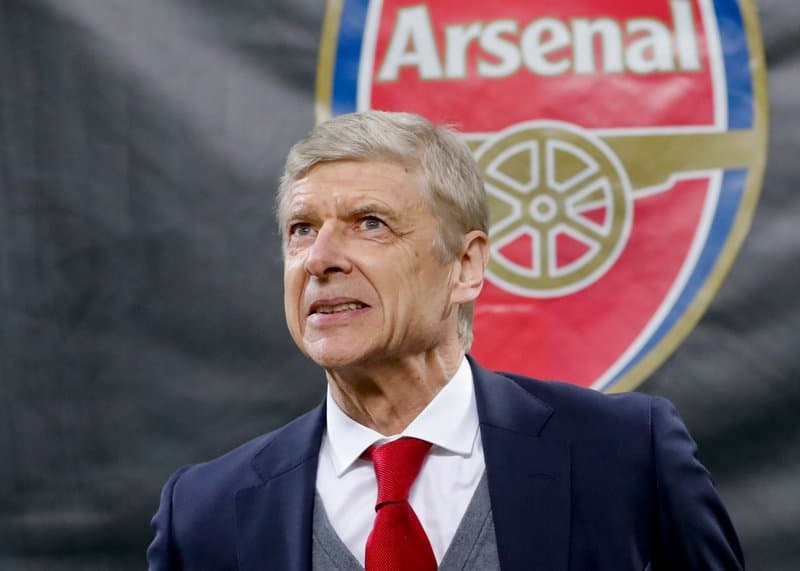LEICESTER, United Kingdom – One of world soccer’s most successful managers gave credit to his Catholic upbringing for preparing him for the challenges of the professional game.
Frenchman Arsène Wenger – who managed London-based Arsenal from 1996 to 2018, winning the Premier League three times and the FA Cup seven times – spoke about his Catholic upbringing on Sunday’s edition of the BBC Radio 4 show Desert Island Discs.
Describing his upbringing working at his parents’ bistro in Duttlenheim, near Strasbourg, Wenger said hard work was admired in the agricultural village.
“The bistro was open every day of the year. It closed only one day from 4 o’clock in the afternoon until midnight and that was Christmas, because the village was dominated by religion, so that was no holiday,” he said.
We went [to Mass] every day, and after[wards] we went to school, and we had to confess every week,” he recalled. “Sometimes I learned to lie as well, because I didn’t always remember what I did wrong, but you came out fresh. You always felt: Okay I have confessed now, God forgave me, and I can start again,” Wenger said.
Desert Island Discs has been aired by the BBC since 1942 – originally on the broadcaster’s armed forces network – and features a “castaway” who chooses what eight recordings they would take with them if they were stuck on a desert island.
Between selections, the guest is asked about various topics, from their childhood to current events.
Wenger had an eclectic choice: “The Wonder of You” by Elvis Presley, which is played at the beginning of Arsenal’s home games; “Could You Be Loved” by Bob Marley & The Wailers; “Imagine” by John Lennon; “My Way” by Frank Sinatra; as well as French songs “Avec Le Temps” by Léo Ferré; “Évidemment” by France Gall; and “Ne Me Quitte Pas” by Jacques Brel.
He said if he could only take one, it would be “Avec Le Temps” [“With Time”], since its message is: “Time is a good doctor.”
“[Time] heals you; it heals every wound. You have to get over that in life. It’s no only success, it’s as well suffering, and you have to give time to time sometimes,” he said.
Speaking about his Catholic upbringing, Wenger said it meant he was “never completely happy, because you never do well enough.”
“The religion makes you feel always a bit guilty — because the Catholic religion is like that — but over all the desire not to be scared to work,” the Frenchman said.
Wenger is still a practicing Catholic and has often spoken about his faith.
In 2013, he spoke in London’s Jewish Museum, and said belief is important in life.
“I am forever grateful for the values my religion has given, and basically if you analyse it, all the religions spread good values and positive values,” Wenger explained at the time.
“I prayed a lot when I was a kid because I was educated in a Catholic area,” he added. “Religion was very strong to us, to ask the priest if I can play on Sunday afternoon … now I am a bit less [religious] because when you are under pressure you only think of our game. How can I win the next game? And you try to be a bit more pragmatic.”
Speaking on Desert Island Discs, Wenger expressed some regrets about how his work ethic affected his family life.
“That was my weakness. I must say I gave so much to my job that it was very difficult. Today sometimes I think I have been a monster, you know, because I gave so much, and I didn’t develop the skills,” he explained. “I had plenty friends that I kept my whole life, but … for my family I say overall I was not up to the level that you would expect from a guy like me.”
But now, the 71-year-old is retired from management, although he remains active as the Chief of Global Football Development at FIFA, soccer’s world governing body.
He told the BBC that despite spending decades in management, he enjoys not having to deal with the specific pressures that come with the job.
“I relax by watching all the managers suffer and think it is your turn, my friend,” Wenger said with a laugh.
The influence of his faith was seen in other areas. When asked about his failure to win the UEFA Champions League – the top European soccer competition – Wenger was philosophical.
“It’s difficult, but at the end of the day you are guided by dreams our whole life and some come true, some don’t come true; and you have to accept you never win everything you want to and you have to live with what you didn’t achieve,” he said. “The most important is to be faithful to what is important for you: That means find a meaning in your life, and walk on the road of your life with the values that look important to you. After that, you win, you lose – it’s part of life.”
Follow Charles Collins on Twitter: @CharlesinRome













